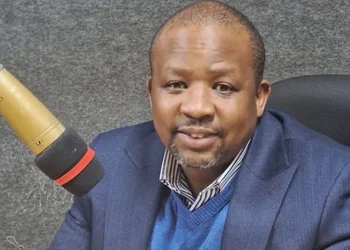In a recent public hearing of the Public Accounts Committee’s Four Weeks Zonal Sittings, concerns were raised regarding revenue collection practices in District Assemblies across Ghana. The meeting in Takoradi, Western Region, examined the Auditor-General’s Report on the Accounts of District Assemblies for the Financial Year ended 31st December 2021.
The Auditor-General’s report uncovered a troubling trend of hefty salaries paid to revenue collectors with minimal returns. In a stark revelation, 20 revenue collectors from four District Assemblies – Ekumfi District, Agona East District, Agona West Municipal, and Abura-Asebu Kwamankese District – were found to have performed abysmally.
For example, in the Ekumfi District, three officers received salaries totalling GHc 43,357.97 but managed to collect only GHc 4,440.00, resulting in a significant shortfall of GHc 38,917.97. Similar disparities were found in the other mentioned District Assemblies, casting doubts on the efficiency and accountability of revenue collection practices.
During the proceedings, the Member of Parliament for Builsa South, Mr. Clement Apaak, echoed a suggestion made by officials from the Ekumfi District Assembly. He supported the idea of transitioning from government-employed revenue collectors to individuals engaged on a commission basis.
This proposed reform is aimed at incentivizing individuals to maximize revenue collection efforts, as their earnings would directly correlate with their performance. The Chairman of the Committee, Mr. James Klutse-Avedzi, also expressed support for this change and committed to making recommendations to Parliament on addressing cash irregularities.
Section 52 of the PFM Act, 2016 (Act 921) emphasizes the need for Principal Spending Officers to establish robust control systems to prevent losses and wastage. This legal framework underscores the importance of accountability and effective financial management within District Assemblies.
Some Municipal and District Chief Executives (MCEs/DCEs) raised concerns that government employment status might lead to a lack of motivation and urgency among revenue collectors. It is suggested that the job security afforded to collectors, regardless of their revenue collection performance, contributes to the issue.
Additionally, the practice of transferring underperforming collectors to different districts, rather than dismissing them, has been criticized as an ineffective punitive measure.
The Chairman of the Committee extended his appreciation to all stakeholders, including MCEs/DCEs, Head Teachers, District Coordinators, Chief Directors, Financial Officers, Accounts, Auditors, and supporting staff from the Parliamentary Service. Their collective efforts contributed to the success of the Zonal Public Hearing.
The Committee is expected to compile a final report, including recommendations, for submission to Parliament before the House goes on recess in December 2023. This report will likely encompass proposals to address the revenue collection challenges and the shift toward a commission-based system, signalling potential reforms in District Assembly revenue collection practices.
As Ghana grapples with these issues, the call for greater efficiency, accountability, and transparency in revenue collection is gaining momentum, with legislative action potentially on the horizon.
















